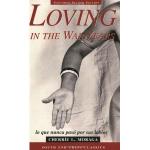
|
| Name: _________________________ | Period: ___________________ |
This test consists of 15 multiple choice questions and 5 short answer questions.
Multiple Choice Questions
1. What does Moraga contemplate in "Hearts?"
(a) How to recover from a war no one knew about.
(b) How to make more money.
(c) How to be a good lover.
(d) How to live a happy life.
2. What imagery does Moraga use in "Heading East" to compare how male-dominated society tries to marginalize women?
(a) A pressure cooker.
(b) A factory line.
(c) A car with a hole in one of its pipes.
(d) A retail store.
3. According to Moraga's mother, a good man ___________________.
(a) Leads the woman in a dance.
(b) Always opens the car door.
(c) Walks on the curb side of the sidewalk.
(d) Orders for the woman in a restaurant.
4. When did Moraga begin to identify with oppressed groups?
(a) When her family became homeless.
(b) When she accepted her lesbianism.
(c) When she roomed with a black girl.
(d) When she went to college.
5. In "La Guera" what does Moraga say made her life easier for her?
(a) Her sense of humor.
(b) Her education.
(c) Her light skin.
(d) Her social status.
6. To which of the following oppressed groups does Moraga refer in "Hearts?"
(a) Hispanics.
(b) All of these.
(c) Homosexuals.
(d) Women.
7. What images does Moraga talk about in "Winter of Oppression, 1982?"
(a) The bombing of Hiroshima.
(b) The My Lai Massacre.
(c) The Holocaust.
(d) The September 11 attacks.
8. How did Moraga feel within her church?
(a) Like she could be a preacher.
(b) Like she was a saint.
(c) Like she was damned.
(d) Like she never gave enough.
9. Cecilia thinks of everything in terms of which of the following?
(a) Racism.
(b) All of these.
(c) Oppression.
(d) Social justice.
10. What happens to Deborah when she and Cecilia stay at a friend's house?
(a) She learns to cook.
(b) She learns to paint.
(c) She breaks her leg.
(d) She has an anxiety attack.
11. What is the name of the woman who assists Moraga in "Modern-Day Hero?"
(a) Katherine.
(b) Kay.
(c) Kim.
(d) Kathy.
12. According to Moraga, ______________ means more than one's own well-being or peace.
(a) The future.
(b) The truth.
(c) Poetry.
(d) Education.
13. What do men need to do in order for women to give up their hearts to them?
(a) Believe in their dreams.
(b) Give up their weapons.
(c) Act like gentlemen.
(d) Support their causes.
14. Moraga belongs to both the feminist and _____________ movements.
(a) queer.
(b) Independent.
(c) liberal.
(d) Democratic.
15. Moraga feels that she places herself at the mercy of ______________ which hates and persecutes homosexuals.
(a) A religion.
(b) An education system.
(c) A political system.
(d) A society.
Short Answer Questions
1. With whom does Moraga identify in "No Born-Again Children?"
2. What is one of the main themes in this section of poems?
3. What is the war that Moraga talks about in "Hearts?"
4. Who is the author of these stories?
5. In "Loving in the War Years" to what does Moraga compare being in love during war?
|
This section contains 494 words (approx. 2 pages at 300 words per page) |

|




